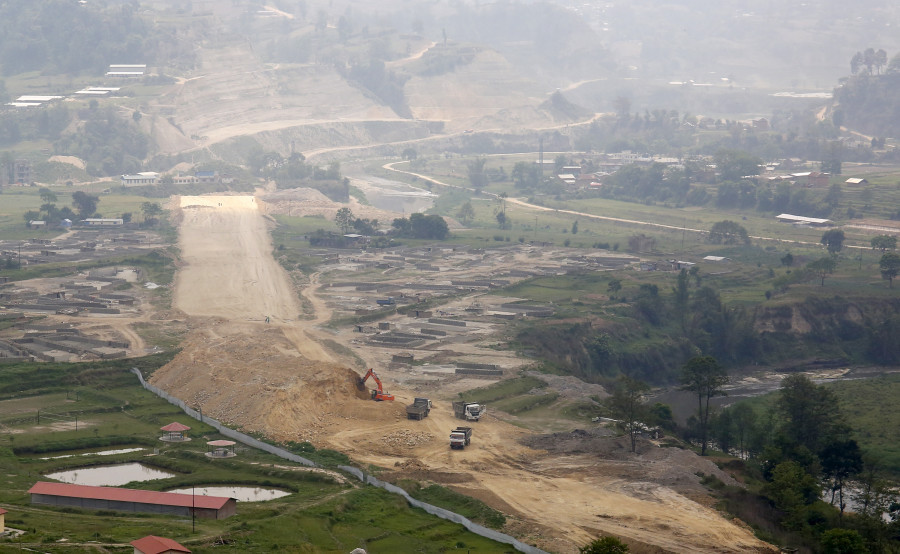National
Nepal Army scraps decision to select international consulting firms for Kathmandu-Tarai expressway
An internal probe finds evaluation criteria were leaked; with new bidding, the completion deadline has been pushed to May 2024.
Binod Ghimire
The Nepal Army has scrapped its decision to select six international consulting firms to assist in the construction of Kathmandu-Tarai expressway after a probe showed the evaluation criteria for the selection were leaked to the probable bidders before the bids were called.
Based on the probe findings of a Court of Inquiry of the Army, the decision to select six international firms—five Chinese and a Turkish—was cancelled.
The Army then recalled the bids for the construction of three tunnels and 16 special bridges. Twenty-two international firms have applied.
The three proposed tunnels with a total length of 6.415 km will be constructed in three different sections of the 72.5 km long roadway of the Asian highway standard. Similarly, out of 86 bridges along the expressway, 16 have been categorised as the special ones requiring international contractors for construction.
Though the Army probe found the selection criteria were leaked, it concluded that the error was technical, not intentional.
“It was a technical error and the investigation showed there was no malafide intention,” said Nepal Army Spokesperson Brigadier General Bigyan Dev Pandey at a press meet on Monday.
He said the officials, including project head Brigadier General Sharad Lal Shrestha, have been warned against repeating a similar mistake.
The Army had started the investigation following complaints that there were irregularities in the procurement and contracting processes for the national pride project.
The project that was supposed to conclude by August 2021, when it was handed over to the Army in August 2017, has been pushed by around three years. The Army has said the expressway, which will reduce the travel time between Kathmandu and Nijgadh in Bara district to an hour, will be completed by May 2024.
Delay in the approval of detail project report and selection of international contractors are the major reasons it has shown for the project postponement.
The detailed project report was endorsed by the Cabinet on August 18, two years after the construction began. “We are committed to completing it within the set deadline,” said Shrestha, who has been reinstated as the project chief after the investigation concluded. He said they will come up with a time-bound work plan for the project within a couple of weeks.
The detailed project report has estimated the project cost at Rs213 billion—Rs 80 billion more than what was projected by an Indian consortium of Infrastructure Leasing and Financial Services Transportation Networks, IL&FS Engineering and Construction, and Suryavir Infrastructure Construction in 2015.
The detailed project report by the Indian firm had estimated the construction cost at Rs133.70 billion ($1.12 billion at the current exchange rate) if it were to be built with a soft loan. The cost would have increased if it was a commercial loan.
After the detailed project report was submitted, the government had sought justification from the Army about the increased cost. Now, the final cost has been revised to Rs175 billion, excluding the contingency expenses.
Though the Army has claimed the project will be completed in the new deadline, it is yet to acquire the land in different places. Following public protest, the Army is yet to get 165 ropanies of land in Khokana and 74 ropanis in other section from the personal possession. The people in Khokana, the entry point of the expressway, have been demanding to relocate the highway.




 16.12°C Kathmandu
16.12°C Kathmandu













